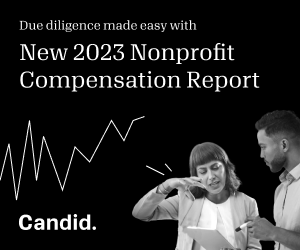People of color-led businesses and nonprofits need capital but infrastructure support, too

With Black, Indigenous, and people of color-led businesses and nonprofits attracting increased public attention and large capital investments in recent years, do we still need additional initiatives? The short answer is yes. Society places the burden of success on entrepreneurs of color while often ignoring the systems that continue to cause them to fail disproportionately. We should be talking more about ways to reduce start-up risks and help businesses become sustainable over the long term.
I come to this work with 15 years impact investing, legal, and entrepreneurial experience. Having previously worked with the Annie E. Casey Foundation in Baltimore and the W.K. Kellogg Foundation in Battle Creek, Michigan, I have managed or co-managed more than $240 million in impact investing allocations in grants, equity, debt, and direct investments. This includes leading or co-leading investments to fund entrepreneurs of color across the United States, along with investments in affordable housing, financial inclusion, job creation, and community development. I have always been passionate about catalyzing investments to people of color-led businesses and nonprofits. It is critical that we not just write the check but position entrepreneurs to continue securing investments and, we should hope, larger ones than what we have provided.
It is no secret that many BIPOC-led firms do not always have the support they need to start or grow their businesses. What most people do not appreciate, however, is the critical role of infrastructure development in enabling a business to grow. It is not just money that would-be entrepreneurs lack. Many need trusted partners who can support them in expanding their networks, conducting market research, solidifying business plans, applying for the requisite licenses and business insurance policies, researching funding streams, setting up payroll systems, etc. As many have shared with me, if you’ve never launched a business or nonprofit before, and no one in your family has done so, you may not know the ins and outs of getting it off the ground.
That is why philanthropic initiatives like the Revolve Fund, a pilot program I launched in March with funding from institutions such as JPMorgan Chase, Open Society Institute – Baltimore, PNC Bank, and the Rockefeller Foundation, is so important. With the Maryland Philanthropy Network as fiscal sponsor, the fund offers recoverable grants to businesses with a social purpose and nonprofits so they can get on firm footing before having to repay or return investments. In addition, the capital, which is only one part of the program, is not extractive. Rather than sending entrepreneurs a check, Revolve Fund sends a check and also lends a hand via recoverable grants.
Why it matters
The highest growth in terms of starting business is among people of color communities, especially Black women. In May 2021, the Harvard Business Review found that Black women are more likely to start businesses than white men. There is a drive within our communities to create opportunity but strong headwinds stifle growth.
Research indicates families of color often have less disposable income for funding businesses and nonprofits. In 2019, the median net worth of white families was 7.8 times that of Black families. Latinx-owned businesses are more likely to experience funding shortfalls than white-owned businesses. It is difficult for emerging businesses to secure critical growth capital and partnerships to expand, test new revenue models, and hire new staff. Moreover, people of color-led nonprofits are less likely to receive investments, often due to the lender or investor having less confidence in their decision making. To scale and be sustainable, entrepreneurs need more access to discretionary capital and trusting partners.
It is important to note that recoverable grants are not loans. Recoverable grants are restricted awards for a particular purpose that include provisions for repayment if certain milestones are achieved. Unlike debt, which for entrepreneurs are liabilities, recoverable grants are assets. Often, recoverable grants serve as risk capital without causing disproportionate harm to grantee partners as they prepare for future interaction with financial institutions. The concept is not new, as private foundations, community foundations, and other institutions have provided recoverable grants for years. This includes efforts by Echoing Green and the Cleveland Foundation.
Recoverable grants are especially helpful for entrepreneurs of color while the nation is still working to recover from the COVID-19 pandemic and some have yet to recover from the 2008 Great Recession. For these and other historical reasons, many people of color are averse to taking on new debt or other types of investments. Revolve Fund addresses this aversion by intentionally offering BIPOC-led nonprofits and businesses recoverable grants that serve as “friends and family-like capital,” along with expert technical assistance and business support. This includes providing grantees financial and marketing expertise, facilitating introductions to financial institutions, and partnering with other local organizations to deliver community programming.
One of the best ways to build wealth is through entrepreneurship. But lecturing people about starting businesses without supporting them with capital and infrastructure is shortsighted. There are differences among starting, starting well, and scaling a business. To be impactful, people of color-led enterprises need both capital and infrastructure support.
We need more programs that help people of color see a path to launching and sustaining a business or nonprofit. Business ownership and nonprofit leadership among people of color should not be out of reach; we just need more help making what is a dream for many a reality.
James C.D. Wahls is founder and managing director of Revolve Fund, senior vice president at Mission Investors Exchange, and a former portfolio manager of the Annie E. Casey Foundation.




